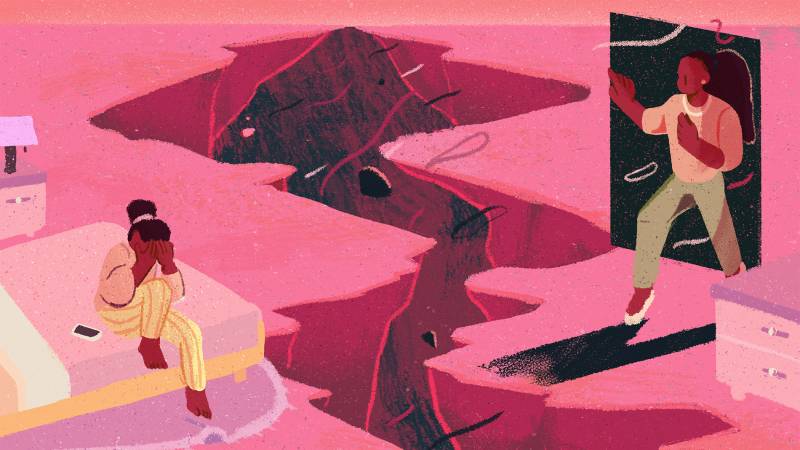"It just is really sad to see what was supposed to be the best years of your life, like, go down the tubes."
That's how E., a 16-year-old who lives in Alexandria, Va., described her state of mind right now. E. is among many teenagers who have struggled during the pandemic with the loss of routines and milestones. (We're not using her name to protect her privacy.) When school went remote last spring, she started staying up late into the night. Once a cross-country runner, she became less physically active. Her grades slipped from A's and B's to F's. She lost friendships and felt lonely. She compared living with her mother to being "in solitary confinement."
Not sleeping, failing classes, and expressing severe pain and turmoil — these are all what Dr. Khadijah Booth Watkins, a psychiatrist and associate director of The Clay Center for Young Healthy Minds at Massachusetts General Hospital, calls a "loss of function." They could be indicators of a serious mental health problem.
There's not much solid data on this, but some clinicians, like Dr. Booth Watkins and Elisa Nebolsine, a cognitive behavioral therapist in Falls Church, Va., say that the levels of distress, including suicidality, in their adolescent patients is among the highest they've seen in their careers. Nebolsine says that's because the pandemic is making it hard for teenagers to meet basic developmental needs. "I mean, their brain is wired for new experiences, for new learning, for social connection, for romantic connection, for status and hierarchy and all these different developmental tasks that they are not getting access to."
If you are worried about a teenager you care about, here's how to start the conversation and when to get professional help.
Spot the red flags
Beyond loss of function, which could include sudden and severe changes in eating, sleeping, or even basic hygiene, red flags could include language about wanting to hurt yourself or not wanting to be around anymore. (If you have any questions about talking to a young person who may be suicidal, our mental health reporter Rhitu Chatterjee did a whole article about that.)



9(MDAxOTAwOTE4MDEyMTkxMDAzNjczZDljZA004))